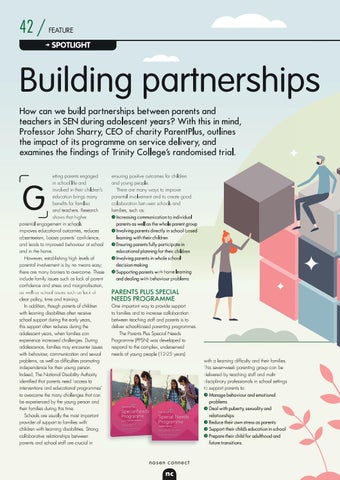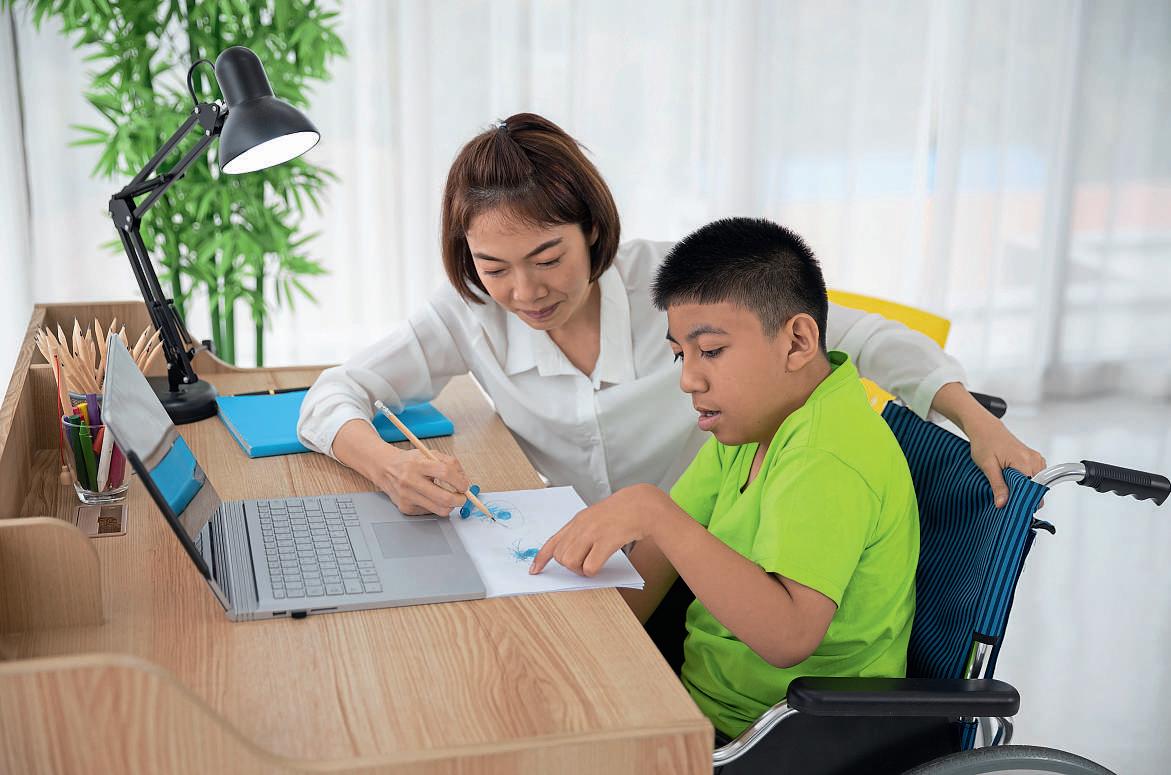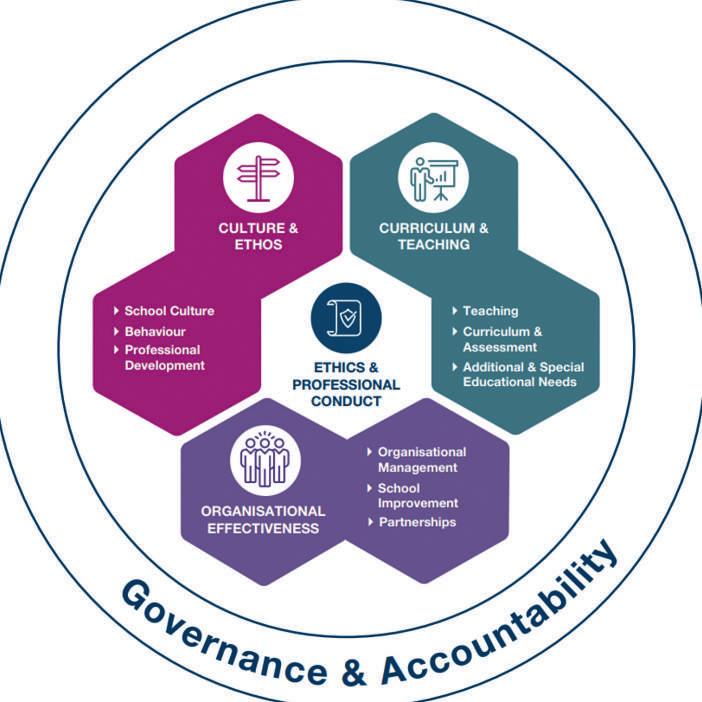42 /
FEATURE ➜
SPOTLIGHT
Building partnerships How can we build partnerships between parents and teachers in SEN during adolescent years? With this in mind, Professor John Sharry, CEO of charity ParentPlus, outlines the impact of its programme on service delivery, and examines the findings of Trinity College’s randomised trial. etting parents engaged in school life and involved in their children’s education brings many benefits for families and teachers. Research shows that higher parental engagement in schools improves educational outcomes, reduces absenteeism, boosts parents’ confidence, and leads to improved behaviour at school and in the home. However, establishing high levels of parental involvement is by no means easy; there are many barriers to overcome. These include family issues such as lack of parent confidence and stress and marginalisation, as well as school issues such as lack of clear policy, time and training. In addition, though parents of children with learning disabilities often receive school support during the early years, this support often reduces during the adolescent years, when families can experience increased challenges. During adolescence, families may encounter issues with behaviour, communication and sexual problems, as well as difficulties promoting independence for their young person. Indeed, The National Disability Authority identified that parents need ‘access to interventions and educational programmes’ to overcome the many challenges that can be experienced by the young person and their families during this time. Schools are usually the most important provider of support to families with children with learning disabilities. Strong collaborative relationships between parents and school staff are crucial in
G
ensuring positive outcomes for children and young people. There are many ways to improve parental involvement and to create good collaboration betw tween w schools and families, such as: Increasing communication to individual parents as well as the whole parent group Involving parents directly in school-b based learning with their children Ensuring parents fully participa ate in educational planning for theirr children Involving parents in whole scchool decision making Supporting parents wiith hom me learning and dealing witth behaviour problems.
PARENTS PLUS SPECIAL NEEDS PROGRAMME One important way to provide support to families and to increase collaboration between teaching staff and parents is to deliver school-based parenting programmes. The Parents Plus Special Needs Programme (PPSN) was developed to respond to the complex, underserved needs of young people (12-25 years) with a learning difficulty and their families. This seven-week parenting group can be delivered by teaching staff and multidisciplinary professionals in school settings to o support parents to: Manage behaviour and emotional problems Deal with puberty, sexuality and relationships Reduce their own stress as parents Support their child’s education in school Prepare their child for adulthood and future transitions.
nasen connect
nc




